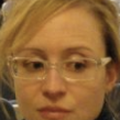Goal
Community Commons is a place to discuss topics and post documents and references relating broadly to medical humanities.
Members
-

Organizer/ Contact
-

Participant
-

Participant
-

Participant
-

Abigail Neely, PhD
Member
-

Member
-

Member
-

Member
-

Member
-

Mark Williams, PhD
Member
-

Neil Vickers, BA DEA MPhil DPhil
Member
- View all
Community Commons Project
Link added by Arden Hegele to Community Commons | 14 Apr 2020
"An ER Doctor in New York," by Network member Helen Ouyang
I’m an E.R. Doctor in New York. None of Us Will Ever Be the Same. A Covid diary: This is what I saw as the pandemic engulfed our hospitals.
Link added by Arden Hegele to Community Commons | 9 Mar 2020
Exhibition: Significant - A Bunch of Viruses (Cambridge, UK)
5 March 2020 - 10 April 2020 // Alison Richard Building, 7 West Road, Cambridge CB3 9DT // An Exhibition by Helen Birnbaum // Significant Bunch of Viruses, 2017 // How do we remember medial pioneers who have changed the path of humanity by saving us all from infection? Should we put a bunch of flowers on their graveside, or by their favourite place, and sit and remember them? The strangely beautiful world of microbes is explored in this exhibition, using mixed media and ceramic bouquets; the Influenza virus sits on weighing scales balanced against a large vaccine producing egg; Tuberculosis bacteria sprout from milk bottles; the HIV virus flows from an old urinal jar, and Smallpox virus cluster together as if actually inside the bloodstream. // Quarantine Boxes, 2019 // Collections of ephemera and tiny microbial sculptures are contained inside old wooden boxes, suggesting containment of the disease, of putting them into isolation or quarantine. They also act as coffins and as a way to remember the individuals lost to these diseases. Helen Birnbaum creates stories in clay, using this ancient material to explore modern imagery and mythologies of our lives today. Helen has exhibited at the World Museum Liverpool, the Gordon Museum at Guy’s Hospital, and Art Box Basel. In 2018 she won the Victoria & Albert Museum/Morley Gallery Ceramic prize. In 2014 she was resident Ceramic Artist at Liverpool Hope University. Helen would like to thank the immunologist Matthew Helbert for his advice in creating these works.
Link added by Arden Hegele to Community Commons | 17 Feb 2020
March 4: “Mental Illness, Mass Shootings, and the Politics of American Firearms,” a talk by Jonathan Metzl
Narrative Medicine Rounds, Columbia University, March 4, 2020, 5-7pm For our March Narrative Medicine Rounds, we welcome Jonathan M. Metzl, MD PhD, who is the Frederick B. Rentschler II professor of sociology and psychiatry at Vanderbilt University and director of its Center for Medicine, Health, and Society. In his talk, Dr. Metzl, addresses four assumptions that frequently arise in the aftermath of mass-shootings in the United States: (1) that mental illness causes gun violence, (2) that a psychiatric diagnosis can predict gun crime before it happens, (3) that shootings are the deranged acts of mentally ill loners, and (4) that gun control won’t prevent another Newtown. Each of these statements is certainly true in particular instances. Yet notions of mental illness that emerge in relation to mass shootings frequently reflect larger cultural stereotypes and anxieties about matters such as race, social class, and politics. These issues become obscured when mass shootings come to stand in for all gun crime and when “mentally ill” ceases to be a medical designation and becomes a sign of violent threat. He will also speak about his most recent book, Dying of Whiteness: How the Politics of Racial Resentment is Killing America’s Heartland. His other books include Against Health: How Health Became the New Morality; The Protest Psychosis: How Schizophrenia Became a Black Disease; and Prozac on the Couch: Prescribing Gender in the Era of Wonder Drugs. He hails from Kansas City, Missouri, and lives in Nashville, Tennessee. Narrative Medicine Rounds are monthly rounds on the first Wednesday of the month during the academic year hosted by the Division of Narrative Medicine in the Department of Medical Humanities and Ethics at Columbia University Irving Medical Center. These events are free and open to the public. While we do not live stream these events, you can listen to a podcast of them on iTunes. PLEASE NOTE: March Narrative Medicine Rounds will take place in the Faculty Club.
Link added by Arden Hegele to Community Commons | 4 Sep 2019
Framing Our Struggles for Justice
In commemoration of the grim 400th anniversary of the first Africans sold into bondage in North America, Grand Rounds at Columbia University will examine how inequality has been sewn into the fabric of American society with particular impact on health across populations. We invite you to explore these themes with us over the next year.
Link added by Arden Hegele to Community Commons | 21 May 2019
Meeting of the Network at the CHCI Annual Meeting: Dublin, June 19
Wednesday, June 19, 2019 Location: TBD The CHCI Health & Medical Humanities Network was founded in 2015 and serves as a hub for researchers who aim to contribute to the ways medicine and humanities are taught and practiced. The network seeks to provide new models for research within and across fields, as well as foster collaboration between scholars working in humanities departments and their colleagues in the health sciences. This network meeting will offer an informal, informational session designed to bring together administrators, scholars, and practitioners with interests in the health humanities in diverse global contexts. We will discuss the outcomes of the June 2019 CHCI Medical Humanities Institute in Paris, Health Beyond Borders, as well as upcoming plans for 2020 CHCI Summer Institutes in Dar es Salaam, Tanzania and Odense, Denmark. Members will be asked to share updates from their respective centers’ activities and future opportunities. 2:30 pm - 3:00 pm | Welcome and Introductions 3:00 pm - 4:00 pm | Informational Session Facilitators: Kathryn Rhine, University of Kansas Rishi Goyal, Columbia University If you are interested in attending this event, please RSVP to https://chcinetwork.org/2019-annual-meeting/network-meeting-rsvp-form
Link added by Martina Zimmermann to Community Commons | 8 Sep 2017
The Poetics and Politics of Alzheimer's Disease Life-Writing (Palgrave, 2017)
This is the first book-length exploration of the thoughts and experiences expressed by dementia patients in book published narratives. It contrasts third-person caregiver and first-person patient accounts from different languages and a range of media, and specifically focuses on the poetical and political questions these narratives raise. Thanks to Wellcome Trust funding this book is open access and can be downloaded free from the publisher's page.
Link added by Sarah Greene to Community Commons | 5 Jun 2017
Narrative constructs in modern clinical case reporting
Recommended by Brian Hurwitz. Abstract: Modern clinical case reporting takes the form of problem-solution narratives that redescribe symptoms in terms of disease categories. Authored almost always by those who have played a part in the medical assessment of the patient, reports historicise the salient details of an individual's illness as a complex effect of identifiable antecedent causes. Candidate hypotheses linking illness to pathological mechanisms are suggested by the patient’s experience, and by data that emerge from clinical examination and investigation. Observational and interpretive statements from these considerations are fitted into a temporally inflected account of the patient’s medical condition, configured from the vantage point of hindsight. Drawing on established forms of deferred telling, readers are invited to follow a story that drip-feeds a mixture of contingent and non-incidental information into the account, which engenders and frustrates curiosity, creates expectations, and challenges powers of reasoning and pattern recognition. Whereas case reporting once favoured memoir, the sentimental tale and eccentric biography as the means by which its historical narrative was cast, the preferred genres of contemporary case reporting include detective fiction, and puzzle and riddle narratives, formats that conceptualise the medical consultation in narrow problem-solution terms.
